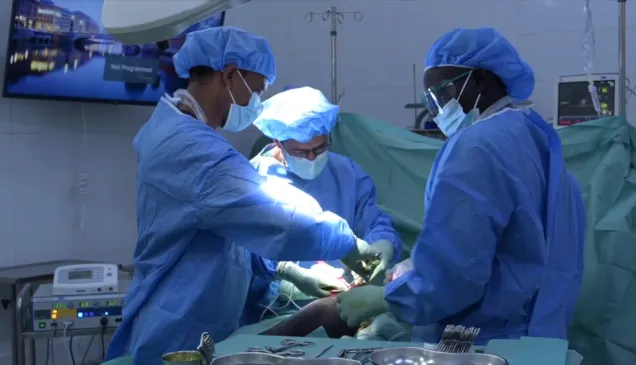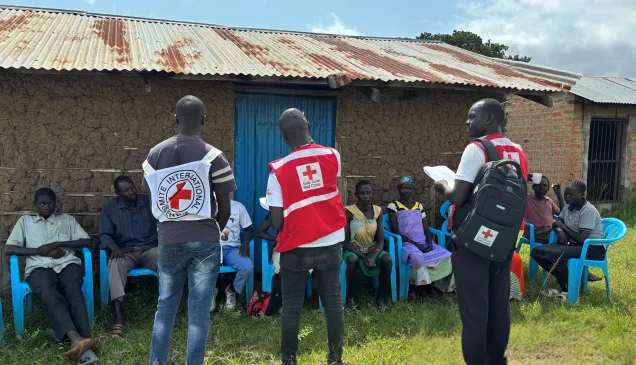On February 9th, the Kodok hospital received dozens of wounded people.
South Sudan: Hospital staff face difficult choices as fighting intensifies
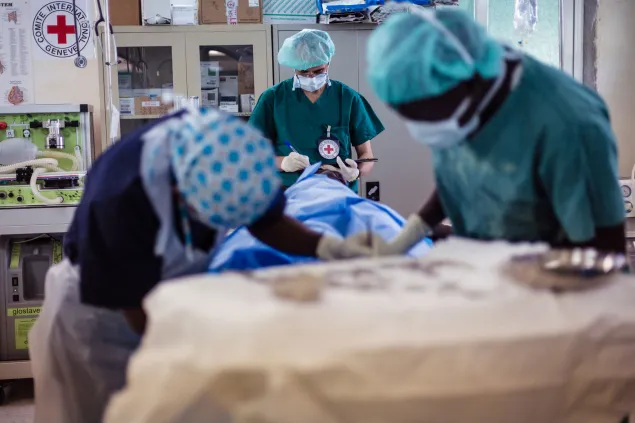
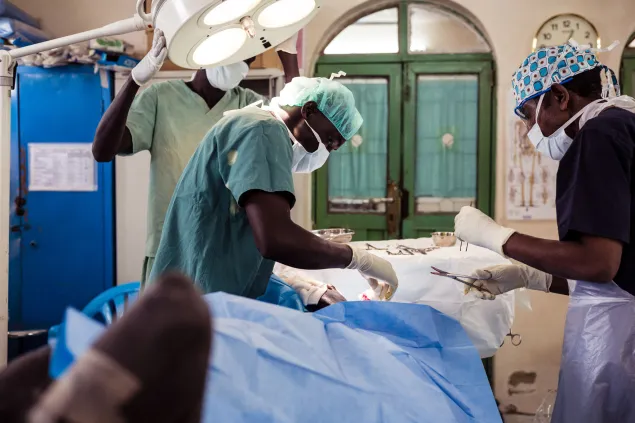
As fighting intensified in the Upper Nile region, the ICRC surgical team in Kodok hospital worked around the clock.
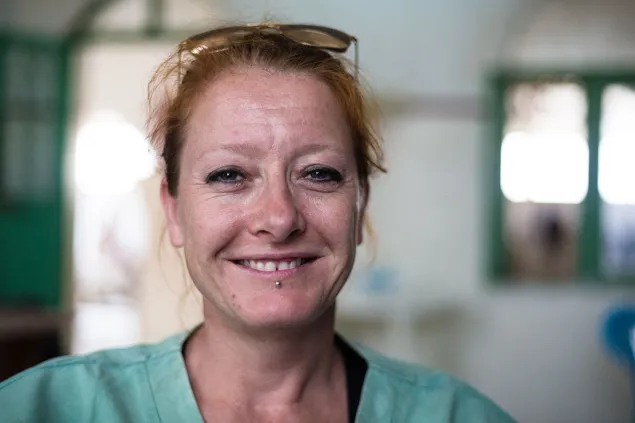
"The wounded started arriving in the morning. At first it was chaos. We had to organize ourselves quickly and start doing the triage to identify the most critical cases," said Charlotte, an ICRC nurse.
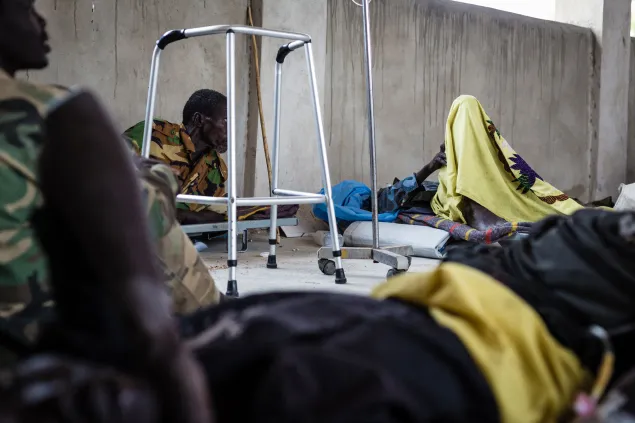
"I remember one person with a gunshot wound in the jaw. His jaw was falling off and he must have been swallowing his own blood. He kept coming back to me, gesticulating, desperately asking for help. But I had to tell him to wait. As terrible as his condition was, it was not an immediate life threat. We had to take care of the abdominal and the chest wounds first," said Charlotte.
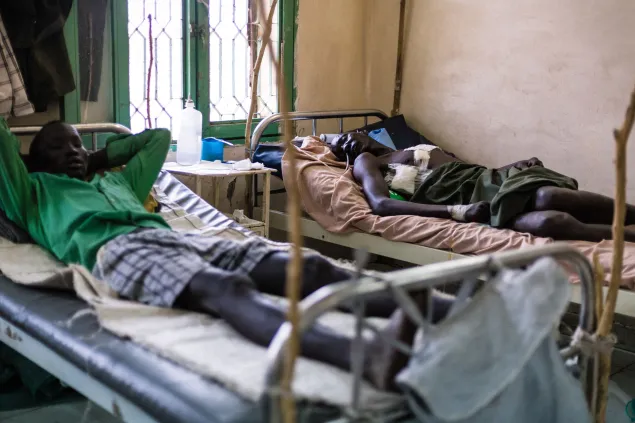
"People just kept coming. Each time I heard a car outside I shuddered as it meant there were more patients. We didn’t stop for a minute till about 10 pm," said Charlotte.
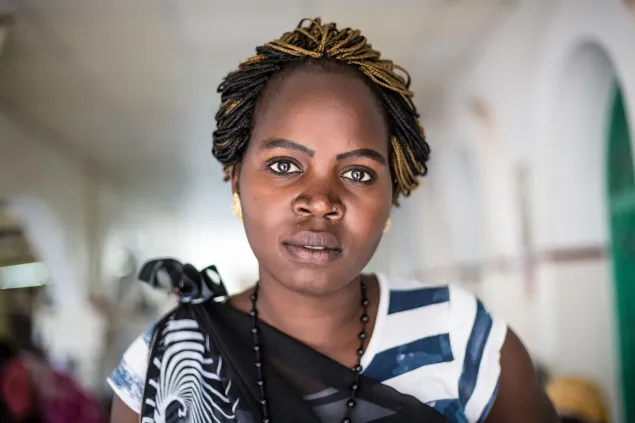
"My hands were trembling as I was helping out with the triage. This hospital was hit by fighting in the past and we were scared this might happen again," said Dianne, an ICRC health assistant.
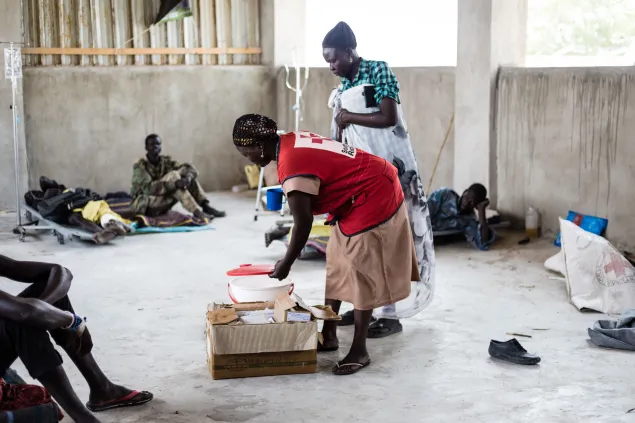
"Patients were everywhere, lying in the corridors, on the floor. They were all screaming for help, but we had to take care of the most critical cases first," said Dianne.
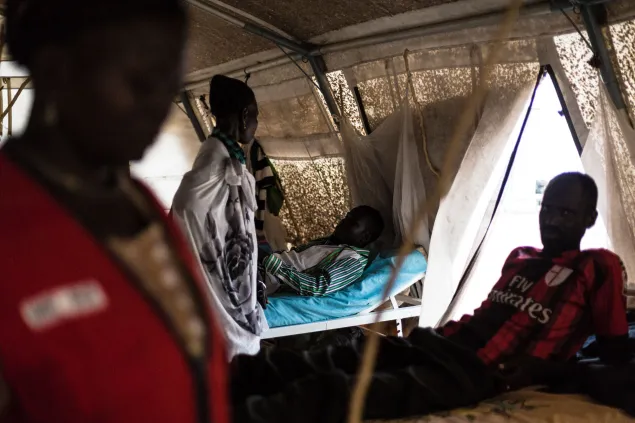
With the influx of wounded, space in the wards became scarce and some of the more stable patients had to be moved to the tents and outside buildings. Many were flown to the ICRC-supported hospital in Maiwut.
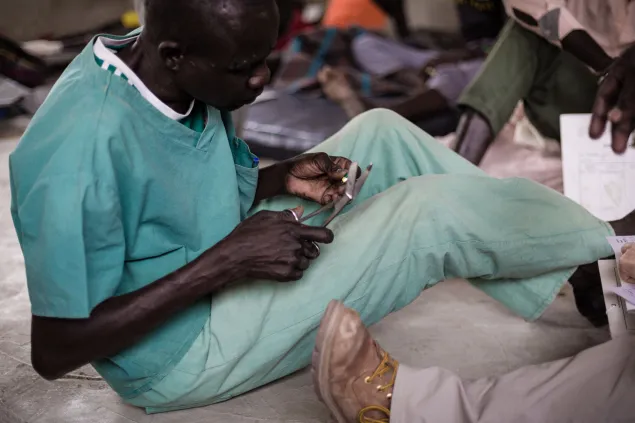
Local hospital staff and South Sudan Red Cross volunteers spent long hours attending to their patients.
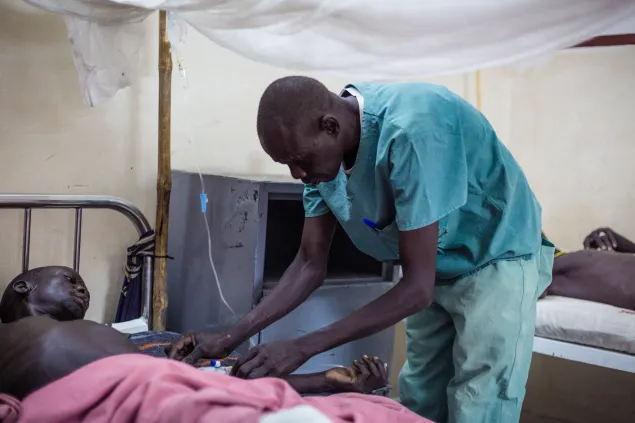
Despite fears that the fighting would spread to Kodok, the hospital staff and South Sudan Red Cross volunteers continued saving lives.
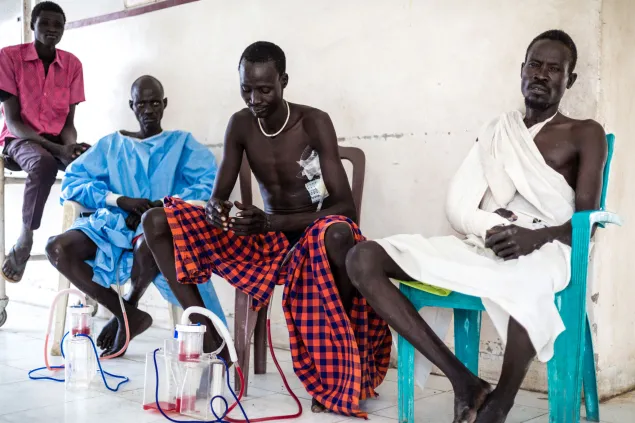
Space in the wards was scarce because of the influx of the wounded.
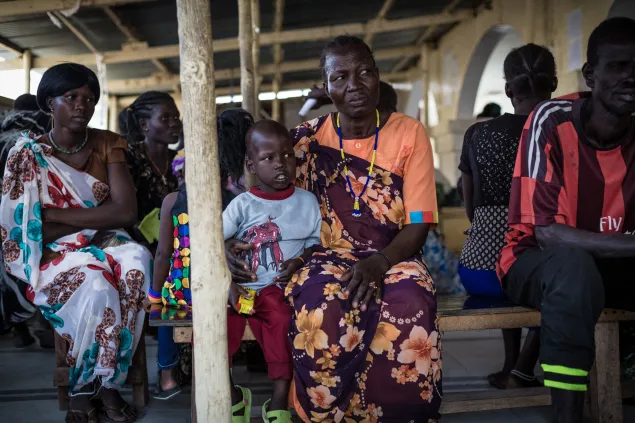
The intensification of violence coincided with the windy season, when ailments like eye infections increase. The hospital staff had to manage the influx of the wounded with the regular flow of patients.
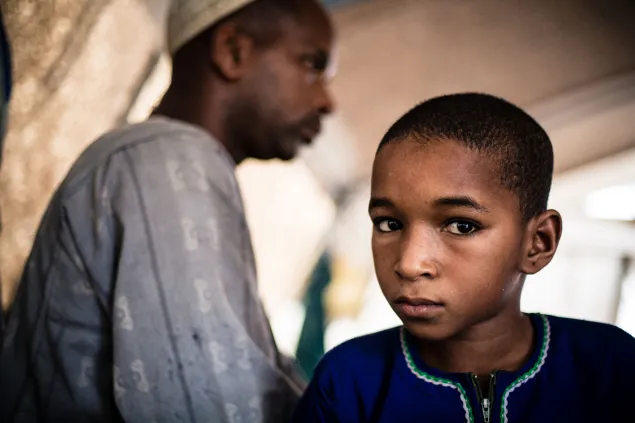
Faisal was receiving treatment for his fractured leg when the violence started. “We realized something was wrong when we saw wounded arriving in large numbers. We were scared that the clashes might reach the town. Now the most difficult thing for us is to find the way to return home,” Faisal’s father said.
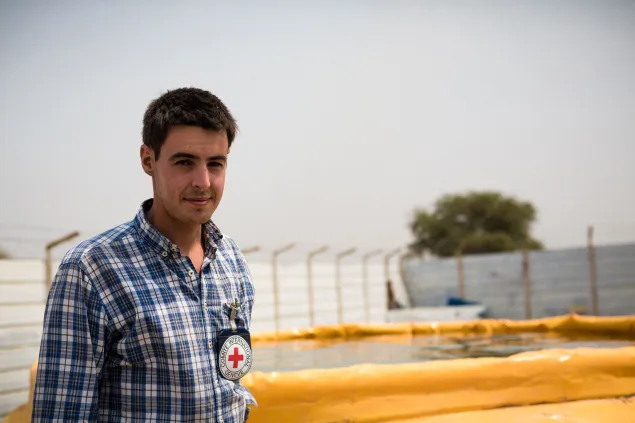
"We had to set up an emergency water system in just two days to make sure that the hospital has a constant supply of clean water," said Mario, an ICRC water engineer.
With the upsurge of violence that hit South Sudan's Upper Nile region in February, Kodok hospital staff and the ICRC surgical team have had to cope with an influx of wounded patients.
Despite growing fatigue and fears that the fighting could spread to Kodok, the medical team worked overtime to save lives.


